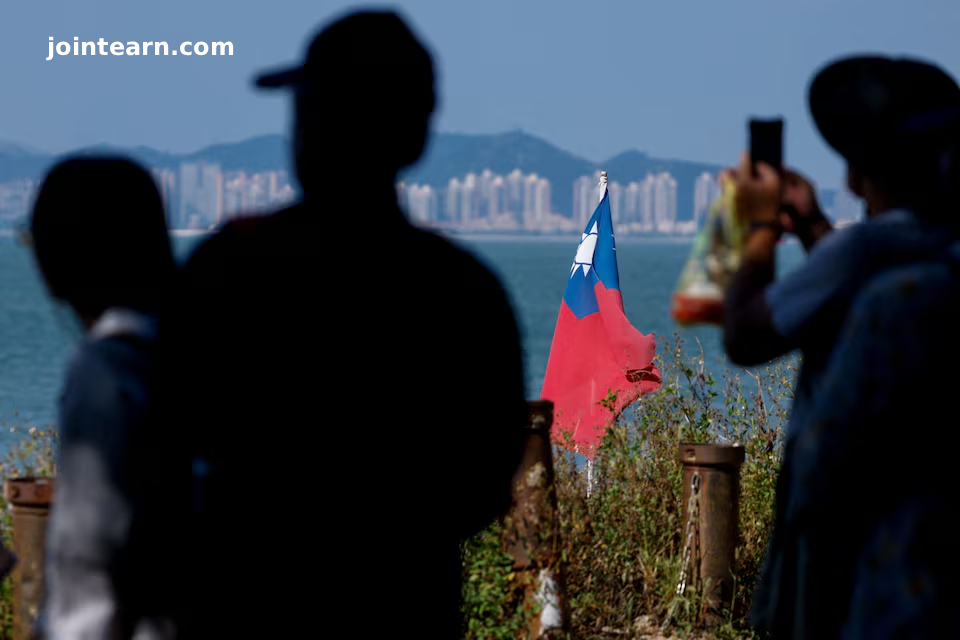
China Reaffirms It ‘Will Not Rule Out Use of Force’ Over Taiwan Ahead of Trump–Xi Talks
Beijing Hardens Its Stance on Taiwan
BEIJING/TAIPEI – In a sharp escalation of rhetoric, China has declared it “absolutely will not” rule out the use of military force against Taiwan, reinforcing its long-standing stance on reunification just a day before a critical meeting between Chinese President Xi Jinping and U.S. President Donald Trump in South Korea.
Speaking at a regular press briefing, Peng Qing’en, spokesperson for China’s Taiwan Affairs Office, emphasized that while peaceful reunification remains Beijing’s preferred route under the “One Country, Two Systems” model, the Chinese government retains the right to employ military measures if necessary.
“We are willing to create ample space for peaceful reunification and will spare no effort to pursue this prospect with the utmost sincerity,” Peng said. “However, we absolutely will not renounce the use of force and reserve the option to take all necessary measures.”
This marks one of the most direct and forceful statements from a Chinese government official this year, contrasting sharply with the softer tone taken in recent Xinhua commentaries that outlined a vision of “benign rule” and economic integration if Taiwan accepted reunification.
Taiwan Vows to Resist Aggression
Taiwan President Lai Ching-te responded defiantly during an address to senior military officials, reaffirming Taiwan’s resolve to defend its sovereignty against growing Chinese military pressure.
“Taiwan must demonstrate its determination to defend our homeland and firmly oppose annexation, aggression, and the advancement of unification,” Lai stated, according to a transcript released by the presidential office.
Taiwan’s National Security Bureau Director-General Tsai Ming-yen further dismissed Beijing’s “patriots-only” model as unfit for Taiwan, comparing it to the systems imposed on Hong Kong and Macau.
“The aim is to weaken Taiwan’s international standing and apply the same political control seen in Hong Kong and Macau,” Tsai said. “There is no market for this model in Taiwan.”
China Pushes “Peaceful Reunification” Amid Global Scrutiny
China’s renewed push for peaceful reunification under the “One Country, Two Systems” principle — a formula heavily criticized since its use in Hong Kong — comes amid increasing geopolitical pressure and economic rivalry with the United States.
While Wang Huning, Beijing’s top Taiwan policymaker, avoided direct reference to military action in his Saturday speech, he asserted that both sides would “benefit greatly” from eventual reunification.
Still, the latest statement by the Taiwan Affairs Office reinforces that Beijing’s patience may be wearing thin, especially as Taiwan continues to deepen defense ties with the U.S.
Trump–Xi Meeting Looms Large
The timing of China’s tough statement coincides with preparations for a high-stakes meeting between Trump and Xi in Busan, South Korea, on Thursday — the final leg of Trump’s Asia tour.
Trump has told reporters he is uncertain whether Taiwan will be on the agenda, saying, “I don’t know if we’ll even discuss it.” However, analysts believe Taiwan’s security and U.S. arms sales could become a flashpoint in broader trade and diplomatic negotiations.
China’s foreign ministry earlier said the Trump–Xi meeting would “inject new momentum into the development of U.S.–China relations”, while observers in Taipei caution that Beijing may use the talks to test Trump’s stance on Taiwan’s autonomy.
Rising Cross-Strait Tensions
The situation adds to growing unease across the Taiwan Strait. China has intensified military patrols near the island, while Taiwan continues to modernize its defense capabilities with U.S. support.
Beijing’s refusal to engage with President Lai, whom it labels a “separatist”, underscores the diplomatic freeze that has persisted since Lai took office.
Taiwan, which held its first democratic presidential election in 1996, continues to reject Beijing’s sovereignty claims, maintaining that only its 23 million citizens have the right to determine their future.
Outlook
As the world awaits the outcome of the Trump–Xi summit, the Chinese government’s hardline statement serves as a reminder that the Taiwan question remains the most volatile issue in U.S.–China relations.
Whether this latest show of resolve signals renewed military pressure or a strategic attempt to strengthen Beijing’s hand in negotiations remains to be seen.
What is clear is that tensions over Taiwan — already at their highest in years — are set to remain at the forefront of global diplomacy in 2025.


Leave a Reply